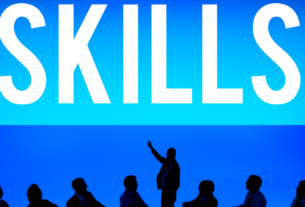Best practice for ethical decision making
Ethical decision making is a critical process that involves weighing different options and determining the best course of action based on ethical principles and values. In today’s complex and rapidly changing world, ethical decision making has become even more important as individuals and organizations face a wide range of moral dilemmas and challenges. Ethical decision-making involves a deliberate thought process that considers the ethical implications of a decision. Here are some steps to follow for ethical decision-making.
Identify the problem:
Clearly define the problem and the decision that needs to be made. The best practice for making involves identifying the problem by first determining the underlying values and principles involved, and then assessing the potential consequences of different courses of action. This includes gathering information, considering various perspectives. Evaluating the potential impact of each option on stakeholders. Ultimately ethical decision making involves choosing a course of action. That aligns with ethical principles and values and minimizes harm to all involved parties.
Gather information:
Collect all the relevant facts and information related to the problem. This could involve reviewing policies, laws, regulations, and consulting with stakeholders. When making ethical decisions, it’s important to gather as much relevant information as possible. This includes identifying stakeholders, understanding the potential consequences of various options, and evaluating the ethical implications of different choices. Consult multiple sources of information, seek out diverse perspectives, and consider the long-term effects of your decision. Additionally, ensure that you’re upholding ethical principles such as honesty, integrity, and respect for human rights.
Identify the stakeholders:
Identify all the parties who may be affected by the decision, including employees, customers, shareholders, and the community. The best practice for ethical decision making involves several key steps. First, identify the stakeholders involved in the decision. These are the individuals or groups who have a vested interest in the outcome of the decision. Examples of stakeholders may include employees, customers, shareholders, suppliers, and the community. Once stakeholders are identified consider their needs values, and perspectives when making the decision. Finally evaluate the decision based on ethical principles and potential impacts on stakeholders. By following these steps, ethical decisions can be made that consider the interests of all stakeholders involved.
Evaluate options:
Consider different options for resolving the problem and evaluate the ethical implications of each option. When making ethical decisions it is important to consider the potential consequences of each option and how they might affect all parties involved. Additionally you should analyze the decision from different perspectives. Evaluate it against ethical principles or values. It’s also recommended to seek advice from impartial parties and evaluate potential conflicts of interest. Finally one should be willing to take responsibility for the decision and its consequences.
Communicate the decision:
Communicate the decision and the reasons behind it to all stakeholders who may be affected by it. Ethical decision making involves considering values, principles, and consequences when making choices that impact others. Once a decision is made it is important to communicate it clearly and transparently explaining the reasoning behind the decision. Any steps that will be taken to address potential consequences. This promotes trust and accountability in relationships and organizations.
Implement the decision:
Put the decision into action and monitor its impact. Make any necessary adjustments as needed. To implement an ethical decision, one must first communicate the decision to all parties involved and ensure that they understand the reasoning behind it. Next any necessary actions or changes should be made to align with the decision. Finally ongoing monitoring and evaluation should take place to ensure that the decision remains effective. Remember decision-making is an ongoing process and it’s important to regularly review decisions to ensure. They remain ethical and align with the organization’s values.
Conclusion:
In conclusion decision making is a critical process that involves considering the moral implications of actions and making choices that align with ethical principles. It requires individuals to assess the potential impact of their decisions on various stakeholders. Including themselves their organization, and society as a whole. Ethical decision making involves identifying ethical dilemmas exploring alternative solutions. That selecting the best course of action that promotes the common good while minimizing harm. Ultimately ethical decision making is essential for creating a just sustainable society that values human dignity equality and respect for others.
FAQs:
Why is ethics important?
Ethics provides a framework for moral decision-making and guides individuals. Organizations to behave in a responsible and accountable manner. It ensures that actions are aligned with values and principles promoting trust and fairness in society.



